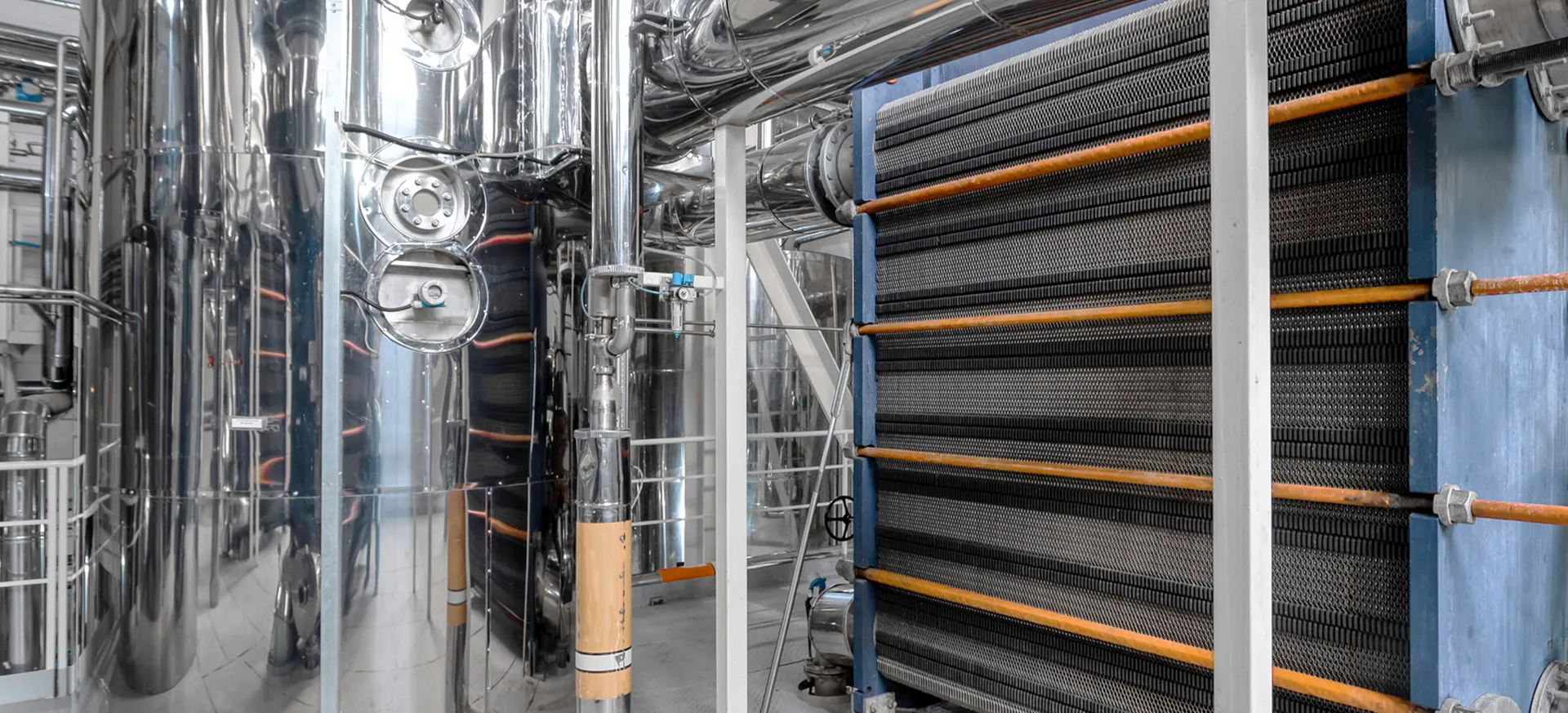Integral to process cooling and hydronic systems, heat exchangers and heat transfer fluids play a key role in:
• Maximising thermal efficiency
• Reducing energy consumption
• Minimising CO2 production
• Boosting profitability
Failing to optimise thermal efficiency will:
• Lower production rates
• Delay returns on investment
• Accelerate global warming
• Reduce income
Services and Products intrinsic to Thermal Optimisation include:
Monitoring & Analysis
To maintain thermal-dynamic performance over extended periods of time, heat-exchangers and heat transfer fluid should remain in 'as new' condition. I.E. there should be no degradation of the mechanical or fluid components.For heat exchangers - Plate or Shell & Tube - this requires regular monitoring of temperture and pressure differentials, at varying flow rates. Ideally the data gathered should be compared with thermal images.
For heat transfer fluid, samples should be taken and analysed on a regular basis.
Hydratech, in cooperation with Alfa Laval, provide the Delta Squared Thermal Optimisation Program, which incorporates the above Monitoring and Analysis. All results, together with Key Observations and Key Recommendations are incorporated into detailed M&A Reports, which can be provided monthly or quarterly.
Maintenance
Based upon the Key Recommendations, as detailed in the M&A Reports, Hydratech FMS division can provide a range of specialist engineering and maintenance services to suit.
For heat exchangers incorporated in process cooling systems - especially food and beverage systems - there is often installed a Cleaning-in-Place (CIP) arrangement on the Process side, but not on the HTF side. For this reason it is rare for the HTF side to be cleaned ‘at all’. Subsequently the rate of heat transfer can be severly impeded, at the cost of reduced output, increased energy consumption etc. Hydratech FMS engineers are trained to disassemble, clean, reassemble, pressure-test and recommission heat exchangers.
As long-time formulators and manufacturers of heat transfer fluids, Hydratech are experienced in the remediation and revitalisation of those fluids. In this regard Hydratech FMS division provide both mechanical and chemical means to maximise HTF performance.
Improvements
Following the recommended sequence of monitoring, analysis and maintenance, it is often possible to identify a range of modifications - large and small - that would improve process output and efficiency.
Ex1. For heat exchangers it is often possible to remove one or more plates and thus reduce pressure-drop and improve pumping efficiency.
Ex2. It is not uncommon for the original HTF selection and concentration to be overly conservative. Hydratech are often engaged to replace ‘old-technology’ HTF with more thermally efficient products, often providing >10% improvement in production output and/or energy savings.
For more information on Hydratech’s Delta Squared Program call 01792 586800 or click below.













